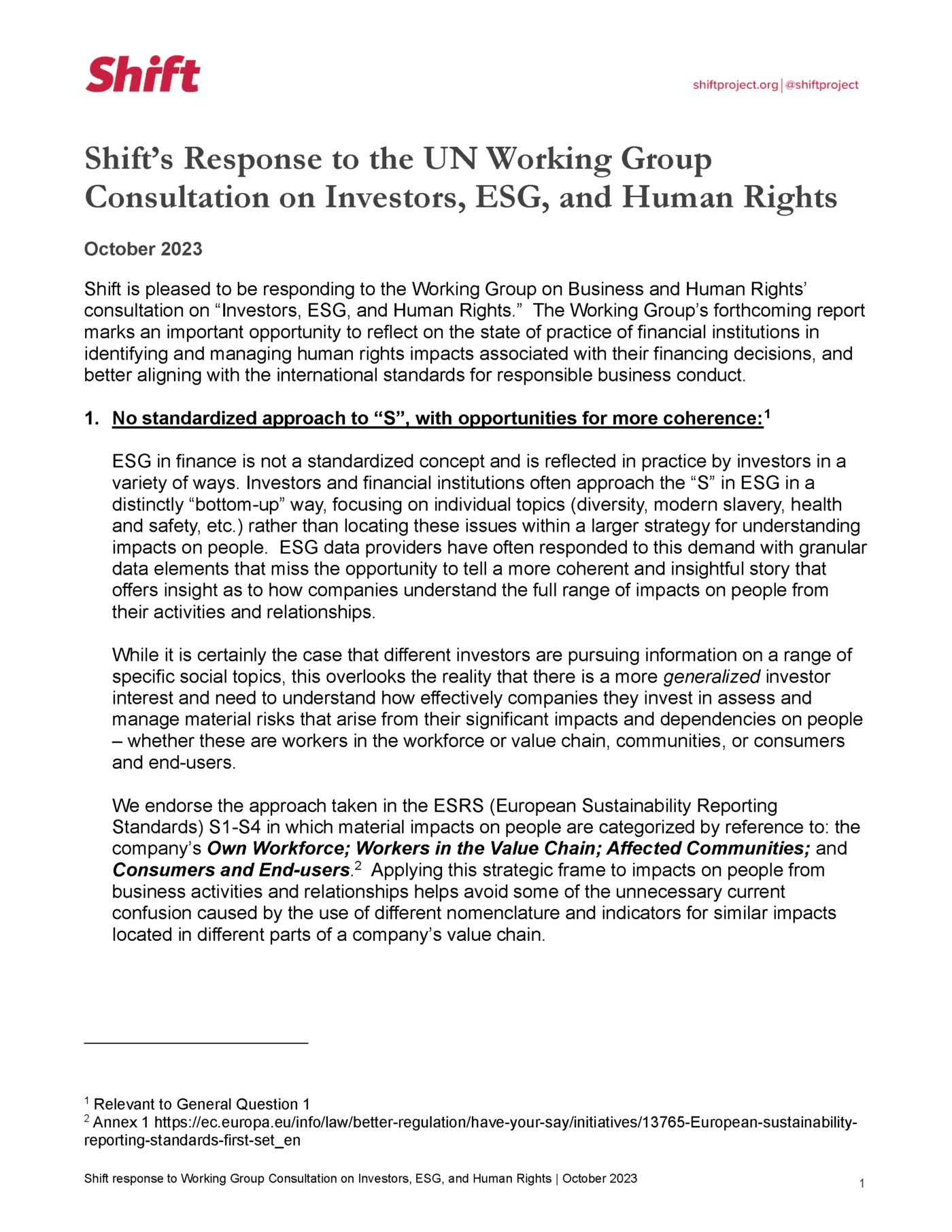This website is provided by Shift Project, Ltd. (“Shift”) and hosted in the United States. Shift is a non-profit, mission driven organization and the leading center of expertise on the UN Guiding Principles on Business and Human Rights.
We are committed to protecting your right to privacy in your use of our website. This privacy statement sets out our information processing practices in relation to you and your personal data collected through the use of this site. This statement does not apply to your use of a third-party site linked to on this website.
1. When and how do we collect personal information via our website?
We collect statistical and other information through your use of our website (please see the cookie statement below). This may include the log data from your visit to our website, analytics about your usage patterns and the performance of our website and technical information about your browser and device configuration.
We also use third-party analytics providers, hosting providers and search information providers from whom we may also receive general aggregated, anonymous information about you.
Our website is not intended for children under 13 years of age. We do not knowingly collect personal information from individuals under 13.
2. How do we use your personal information?
We use collected information to provide personalized services (please see the cookie statement below), to operate, manage and enhance this website and to provide you with information through our newsletter and other mailing services (if you sign up to them via our website).
We do not rent, sell or otherwise disclose personal information about our online visitors with third parties for their own marketing use. We do not share your personal information with third parties except for authorized service providers for the purpose of analytics and website management.
3. Cookie Statement
Shift’s websites, like most websites, uses small text files called cookies to help customize your user experience. This part of our privacy statement provides information on what cookies are, the cookies that Shift uses, and the ways in which you can control those that may be relevant to you. If you do not find the information that you are looking for, or if you need further clarification about any aspect of our privacy statement, please send a message to info [at] shiftproject.org
4. What are cookies?
Cookies are small text files that are downloaded to your device, and stored by your internet browser (for example, Chrome, Safari or Internet Explorer). They allow a website to store information like your user preferences. Cookies are then sent back to the originating website on each subsequent visit. You can think of them as providing a “memory” so that websites can respond in a way that is tailored to your needs. A few examples of cookies working are when a website automatically fills your name in a form or identifies your preferred default language to display information.
5. How does Shift use cookies?
Shift uses cookies with at least one of the following purposes:
- To compile statistical data on the use of our website and its functioning, so that we can monitor and improve it.
- To facilitate your ability to navigate through our website, including to allow users to access specific content.
- To allow us to share our web pages via social media platforms.
6. Which cookies does Shift use?
The content management system that we use, as well as other plug-ins, analytics services and widgets we may have or add in the future, commonly create cookies based on each individual session that you initiate, therefore making them dynamic in their name. While this does not allow us to provide a permanent list of cookies, you can commonly identify them in the file management software of your browser.
If you need support in identifying our cookies, please email info@shiftproject.org.
Additionally, Shift may use social media pixel tags. Pixel tags are used to track conversion from social media to our website. See more information on Facebook here and Twitter here.
7. How can you control cookies?
If you do not wish to receive cookies you can set your web browser to restrict or block them. All modern browsers allow you to change your cookie settings, typically be found in the “Options” or “Preferences” menu of your browser.
If you wish to delete any cookies that are already on your computer, please refer to the instructions for your file management software in order to locate the file or directory that stores cookies.
Further guidance on deleting and controlling cookies is available here. Please note that by deleting our cookies or disabling future cookies, you may not be able to access certain areas or features of our site.



